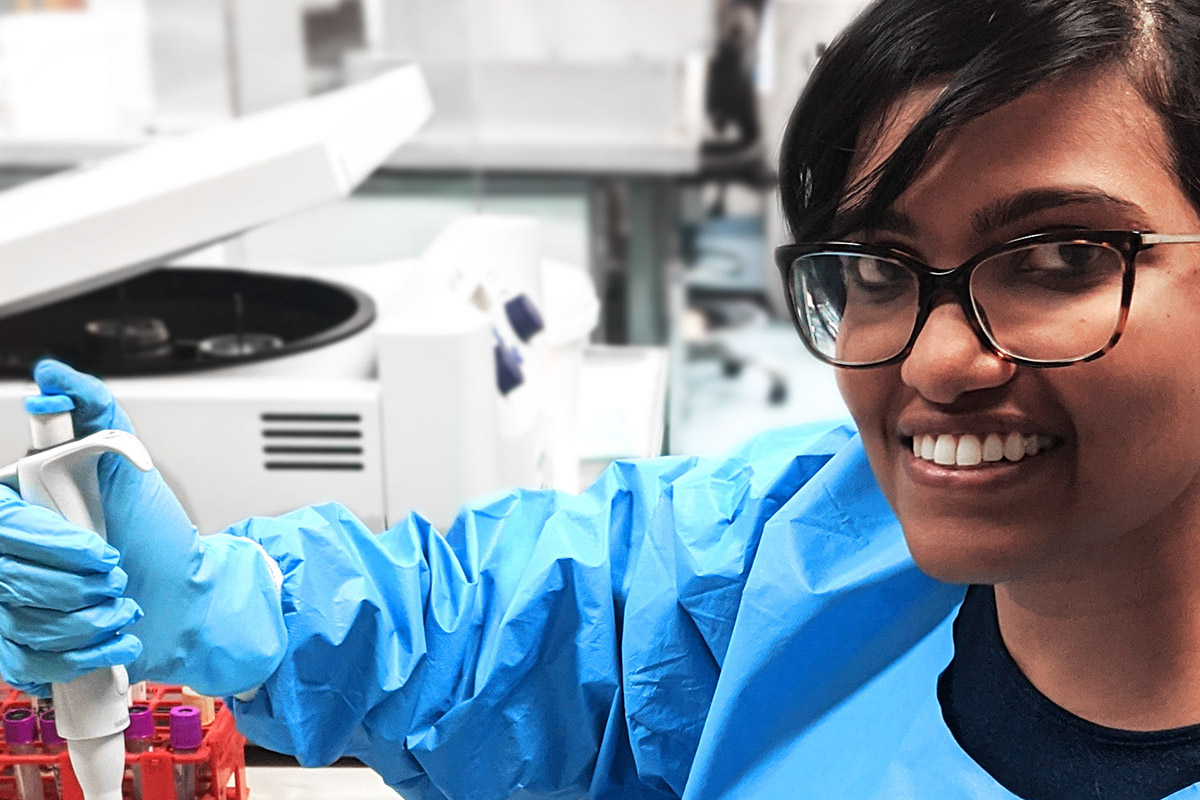Clinical trials test the safety and performance of new medications and treatments. They allow researchers to compare these new treatments with existing options like chemotherapy.
Our research builds blood cancer knowledge to ultimately improve treatment and care across Australia.
The survey of people living with blood cancer found that less than one in five patients reported participating in a clinical trial.
Clinical trials and research at the Epworth Centre for Immunotherapies and Snowdome Laboratories
Clinical trials have real power to change the lives and survival outcomes of people with blood cancer. Sometimes, they are the only way to access new treatments or medications not listed on the PBS (Pharmaceutical Benefits Scheme). But access to trials is a significant issue in Australia.
At Epworth, we recognise the importance of making trials accessible to you. Our team helps streamline the application process to save you time. We are here to answer any questions you or your doctor have about taking part.
Our clinical trials have strict scientific and ethical standards and are approved by a Human Research Ethics Committee (HREC) first. It is always your choice if you would like to apply for a trial or research study.
Frequently asked questions about clinical trials
-
Do I have to pay to join a clinical trial?
No, clinical trials rely on volunteers. There are no costs associated with participating in a clinical trial at Epworth, nor will you be paid.
All medication, tests and medical care required as part of the research project will be provided to you free of charge. Medical care unrelated to the research project will be provided as per your insurance arrangements. -
How do I join a haematology clinical trial at Epworth?
You can view our clinical trials listing to see information about trials looking for participants now. Each trial has its own eligibility criteria. This means they’re looking for people with different blood cancer sub-types and treatment backgrounds. Please speak to your doctor to see if you are eligible for current studies.
For more information, you or your doctor can directly contact Dr Connie Barlas, Clinical Trials Manager at [email protected]
-
What types of clinical trials and research are there?
There are two types of research studies: interventional or observational.
Interventional clinical trials test and evaluate treatments and medicine for new purposes. In medical terms, an intervention is any specific action to improve health, such as prescribing a medication.
Observational studies collect or examine data to better understand diseases and their causes. Observational studies often look at past experiences of people with cancer to find patterns and ways to improve diagnosis. For example, an observational study will ask you to answer questions about your experience, feelings and side effects of your treatment.
At the Epworth Centre for Immunotherapies and Snowdome Laboratories, we work on both investigator-led and industry-led trials. Investigator-led studies start from academics, usually doctors, to explore an area they believe will improve clinical care. Industry-led trials (or commercially sponsored trials) start from pharmaceutical companies. They work with a hospital or institution to test their product to strict clinical standards.

